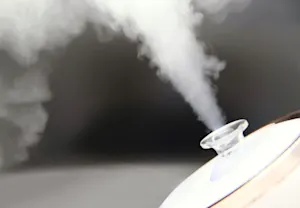What Makes This Word Tick
"Malapropism" is one of those words that makes language lovers chuckle. It refers to the amusing and often unintentionally funny misuse of a word by replacing it with a similar-sounding one. The resulting mix-up typically leads to a completely different meaning than intended. Imagine saying "electrical votes" when you meant "electoral votes."
If Malapropism Were a Person…
Picture an overly earnest friend who always tries to use big words but consistently trips up and says something hilariously incorrect instead. They’re the life of the party without even trying, deriving joy from making everyone else laugh at their verbal slip-ups.
How This Word Has Changed Over Time
While the concept has existed since humans first started talking, the word "malapropism" originates from the comedic character Mrs. Malaprop in Richard Brinsley Sheridan's 1775 play, "The Rivals." Her frequent word blunders lent her name to the term. Over time, it’s become a beloved example in linguistic studies of humor.
Old Sayings and Proverbs That Use Malapropism
There aren't age-old sayings using "malapropism" per se, but there's certainly wisdom in "laugh at yourself, lest others do it for you"—a sentiment undoubtedly appreciated by those who perfect the art of verbal faux pas.
Surprising Facts About Malapropism
Did you know that real-life events have been significantly colored by malapropisms? Politicians and celebrities often slip up during speeches, giving comedians plenty of material to work with. Yogi Berra, the beloved baseball player known for his humorous quotes, was a frequent unwitting contributor to malapropisms.
Out and About With This Word
You'll most often hear "malapropism" discussed among language enthusiasts, English teachers, and those who love a good giggle at linguistic mix-ups. It’s a favorite at trivia nights, often featured in questions about famous verbal blunders.
Pop Culture Moments Where Malapropism Was Used
Pop culture is peppered with malapropisms! Think of Archie Bunker from "All in the Family," whose frequent mix-ups brought laughter and highlighted the character's simplistic worldview. In "The Office," Michael Scott often falls prey to malapropisms, adding to the series’ charm.
The Word in Literature
“Malapropism” finds its perfect home in comedic literature, from Shakespeare's plays to modern novels filled with characters who unintentionally amuse with their vocabulary mishaps. The word enriches storytelling by highlighting character flaws in a humorous light.
Moments in History with Malapropism
Imagine a world leader confidently declaring a "nuclear family" when intending to discuss "nuclear weapons." Such blunders have changed perceptions and provided plenty of fodder for late-night talk show hosts and historians alike.
This Word Around the World
While English speakers enjoy "malapropism," similar phenomena exist across languages. In France, they're known as "contrepèteries." Different languages have their own set of verbal humor rooted in word confusion, showcasing our shared human tendency to laugh at linguistic mix-ups.
Where Does It Come From?
The word derives from Mrs. Malaprop’s name, whose character in 1775’s "The Rivals" soured her eloquence with her frequent attempt to use “fancy” words incorrectly. The blend of “mal” (bad) and “apropos” (appropriate) in French perfectly captures the essence of her amusing mistakes.
How People Misuse This Word
Some folks think "malapropism" is just any funny misstatement, but more specifically, it involves the misguided use of similar-sounding words. Without that mix-up, it’s just a good old-fashioned mistake.
Words It’s Often Confused With
Spoonerism: This involves swapping initial sounds between two words, like saying "tease my ears" instead of "ease my tears."
Freudian slip: A slip that reveals subconscious thoughts or feelings.
Cacography: Poor spelling or handwriting, not to be confused with the verbal mishap of a malapropism.
Additional Synonyms and Antonyms
Synonyms for malapropism include "verbal gaffe" and "linguistic blunder," though no word perfectly captures its essence. Antonyms might be "eloquence" or "articulation," highlighting the finesse missing in a malapropism.
Want to Try It Out in a Sentence?
Next time you’re at a family gathering, impress your relatives with: “Aunt Mabel’s insistence on calling 'compost' 'compote' was a classic example of malapropism that never failed to bring a smile.”
















